|
|
| Blog |
 |
| Archive |
|
Q4/15 Q1/15 Q4/14
|
|
|
| Blog |
| To find an archived article, simply click on Index and scroll the subject titles, or do a Ctrl-F search |
TALLRITE BLOG You can write to blog-at-tallrite-dot-com |
||||||||||||||||||||||||||||||||||||||||||||||||||||||||||||||||||||||||||||||||||||||||||||||||||||||||||||||
| November 2003 | ||||||||||||||||||||||||||||||||||||||||||||||||||||||||||||||||||||||||||||||||||||||||||||||||||||||||||||||
|
|
||||||||||||||||||||||||||||||||||||||||||||||||||||||||||||||||||||||||||||||||||||||||||||||||||||||||||||||
ISSUE #59 - 30th November 2003 [178]
|
||||||||||||||||||||||||||||||||||||||||||||||||||||||||||||||||||||||||||||||||||||||||||||||||||||||||||||||
|
One of the UN’s laudable Millennium Development Goals is to “Reduce by half the proportion of people who suffer from hunger”. To help pursue this, the FAO (the UN’s Food and Agriculture Organization) has been issuing progress reports every year since 1999. The latest report (pdf, 495 kb) was launched on 25th November, entitled “The State of Food Insecurity in the World 2003”, together with a news release that a number of newspapers picked up on. The news release begins with,
and goes on,
These remarks were echoed by a number of newspapers. When you read the report, you see, however, that the tone this sets is misleading, if not dishonest. These are relevant figures taken from Table 1 of the report (the italicised remarks are mine).
In terms of absolute numbers of undernourished people in the developing world, it is true that they went up by 18m in 1999-2001 compared with a drop of 37m during the 1990s. However, the population also went up. When this is factored in, the proportion of undernourished people has continued to fall albeit more slowly, ie from 20% to 18% in five years and then to 17% in the next four years to 2001. Of course, elimination of hunger can never be fast enough, but the performance over the last four years hardly constitutes a “rise” in hunger. Moreover, the UN goal is to reduce by half the proportion of hungry people, not the absolute number. From a (1997) starting point of 18%, there is still a long way to go (ie from 17% to 9%) but the programme is certainly not failing as the publicity about it would have you believe. It is noteworthy, however, that since the 1990s undernourishment in Eastern Europe and the ex-Soviet Union has indeed increased in both absolute numbers (from 25m to 34m) and proportionate terms (6% to 8%), but the absolute numbers and populations are not large enough to reverse the favourable global trend of hunger reduction. If you doubt whether an increase in hunger numbers by 18m is actually an improvement if accompanied by a proportionate drop from 18% to 17%, think about the following.
The FAO should be less eager to claim failure when the figures indicate otherwise. Benevolent organizations (FAO, Oxfam, Amnesty, Greenpeace etc) often love bad news because they believe that brings in higher donations than good news. But they should draw the line at misrepresentation.
Two sacred EU deals seemed to be coming apart last week.
How quickly a year flies by. In October 2002, I moaned about the way France and Germany were being allowed to flaunt the rules of the €uro’s Growth and Stability Pact by running a deficit exceeding 3% of GDP without suffering the concomitant penalty. It was Germany, aided and abetted by France, which put great pressure on EU members to sign the pact in 1997, fearing that flaky countries like Greece or Italy would undermine the €uro with profligate fiscal policies and uncontrolled spending. How ironic that these are the very crimes being committed by Germany and France, whilst Greece is behaving impeccably. Thirteen months ago, when their sins first became apparent, they were nevertheless given an extra year by the combined EU finance ministers to drag their deficits down, even through France said it had no intention of doing so. The year is up, France has kept its word, and Germany too is still running a deficit larger than 3%. But once again, most of the other finance ministers (Austria, Finland, Holland and Spain being thee honourable exceptions) blinked first and let the recidivists off the massive fine of 1% of GDP that could have been levied. No doubt a lot of backroom deals were being made and we can expect, in return, to see different States’ pet projects being supported by France and Germany (for example, Ireland wants to breach its public sector borrowing limits to build roads etc). Nevertheless, the European Commission and the European Central Bank are understandably furious, as is the main German opposition party. For if this fundamental pillar of the €uro is to be undermined at its first real test, and by the self-appointed leaders of the EU no less, who also happen to be its biggest economies, then it can never be enforced in the future, and the other pillars must also be in doubt. The €uro rose against the dollar as soon as Germany and France were let off the hook, since it gives those economies a better chance of bouncing back sooner. Nevertheless, it undoubtedly represents long-term blow to the stability of the brave new currency since its defense in the future can no longer be assumed. There are many who say that the Pact is anyway too rigid to cope with economic downturns. That, if true, is an astonishing admission of incompetence by its distinguished designers who included the formidable German Bundesbank. But as former European Commissioner Peter Sutherland pointed out, that is a reason to renegotiate the rules not to break them. But negotiating EU stuff is very difficult and the risk of unravelling seems to be an intrinsic component.
It is with some relief that I have been observing the disintegration of the pernicious draft. This, you will recall, was launched with the idea of consolidating all the EU’s prior treaties - of Rome, Maastricht, Amsterdam, Nice - into a single document. But, as I discussed in a previous post, the ex-French president Valéry Giscard d’Estaing and his eminent convention of 105, who were charged with producing the draft, could not resist the temptation of using it as a cover for introducing a raft of new provisions. One of these is to change the complicated system of weighted votes in the Council of Ministers agreed at Nice to a “double majority” that would allow EU legislation to be approved by a majority of member-states comprising at least 60& of the EU’s population. Germany and France want the change, because it favours larger states. Spain, Portugal and others don’t, and no agreement is in sight. And after the backsliding over France and Germany’s breaching of the Stability and Growth pact, those countries will not be in a position to call in new favours. In Britain, Tony Blair likes the treaty (probably because he wants to become the newly-created EU President) but Ministers Gordon Brown and Jack Straw don’t because they’re afraid of tax harmonisation. So Britain may well support the Iberians. The EU is supposed to agree the draft at a summit in Rome in December whilst the ten newcomer States can still be kept at arms length. Happily, it looks like it won’t. Unravelling is in the air.
Another Curious Northern Ireland Election Under the Good Friday Agreement, that diseased carbuncle known as Northern Ireland has just held an election to the Assembly from which a ruling Executive is supposed to be formed. Both bodies have been suspended since October 2002 after the IRA were caught spying within Stormont, the government building. An orchestrated deal to resurrect the bodies collapsed last month because the IRA failed to put on a convincing display of arms decommissioning, but as part of the deal’s choreography the election had already been declared. Hence this curious election to a body that won’t be functioning any time soon. Moreover, because a plurality of seats went to the DUP and Sinn Féin, who are the most extreme unionist and republican parties, they get to nominate the First Minister and Deputy Minister in any administration. But since the DUP won’t work with Sinn Féin because it won’t disavow the IRA, it will be months if not years before an Executive is formed. As the irascible 77-year-old warhorse Ian Paisley, founder and leader of the DUP, thundered to UTV’s not-so-little Ivan Little,
So the net change coming out of this election is ... no change at all. The DUP won’t work with Sinn Féin, while demanding a renegotiation of the Good Friday Agreement, and Sinn Féin (as well as others) are refusing any renegotiation. Stalemate. So, for the two English ministers who have been running the province for the past thirteen months, there is job security for the next few years or perhaps until the Rev Paisley finally meets with his Boss. Ian Pearson and Angela Smith, unilaterally imposed by Tony Blair, have been quietly doing the work of no fewer than fourteen would-be Northern Ireland ministers. And since hardly a word about hospitals, schools, transport etc was uttered on the hustings, you have to assume the pair are doing a pretty competent job with no real complaints. Mind you, since English taxpayers contribute 70% of Northern Ireland’s running costs, the ministers’ work is focussed on spending money, which is a lot easier than raising it. The bottom line is that Northern Ireland’s unionist and republican voters alike have democratically and knowingly voted to continue to be ruled, for an indeterminate period, by an undemocratic appointed government from England drawn from a political party (Labour) that does not even exist within the province. The responsibility and self-reliance of adulthood still seem a long way off for the majority of those voters and their native politicians. Note : For a less cynical view of
Northern Ireland’s politics,
The Science of Environmental Tobacco Smoke Two issues ago, I wrote a post on Environmental Tobacco Smoke (ETS) in which I expressed my support for the ban on smoking in all workplaces that Ireland will introduce in February 2004. It included a reference to a study in Helena, Montana purportedly showing a close correlation between a smoking ban and a reduction in heart attacks. This triggered a series of six e-mails from Michael Mac Guinness, initially about the Helena study which he (rightly) chided me for swallowing too readily. But his messages went on to analyse the science, about which he is very skeptical, behind the claimed relationship between ETS and harm to health, with many links to make his points. With his agreement, I have consolidated his messages into a single essay, which I invite readers to review and draw their own conclusions. Click here.
There was a minor ecclesiastical tizz last week when £5,000 was burnt in a quiz show run by an English radio station called Galaxy. Under the rules of the quiz, the winner, Angela Robbins, could keep the £5,000 first prize provided listeners agreed she could. But 51% of them voted that she shouldn’t. Therefore she had to set fire to the money, which she would otherwise have spent on a boob job. She had to shovel it into Galaxy Radio’s studio furnace. The Archdeacon of Birmingham, Hayward Osborne, went on television to decry this outcome, saying the money should have been given to good causes instead of burning it. And Galaxy Radio may be fined by the Radio Authority for breaching guidelines on taste and decency - which must certainly be a first. The story caught my eye because of the outcry against burning money. But isn’t that what every smoker does every day ? I’ve written to the Very Reverend Archdeacon to suggest that he start a campaign to demand
You - and he - will surely agree that we must at all costs stop people burning their money and offending taste and decency. Add this to the ban on smoking in the workplace and imagine how health statistics will soar. I’ll keep you advised about his reply.
Ireland must be about the only Western country that has no post codes. OK, there’s a passing imitation of a post code in the Capital (Dublin 1 to 24), but nothing anywhere else. As Atlantic Blog points out, even if you live in a town like Cobh with 10,000 addresses, your mail will find you with a post-code-free address as simple as
Personally, I don’t care if post codes are introduced or not, so long as my letters continue to arrive. My only plea would be that any new post codes be all-number like America and Singapore, or else all-letter (though not upper and lower case mixed). The worst model of all is the UK’s and Canada’s where capital letters are jumbled in with numbers, eg PO20 7IA (which is somewhere in Sussex). These are excruciating to type, especially if you touch type. And even when writing by hand, they invite mixups between, for example,
So I expect that’s what we’ll get.
By Guest-Blogger, Jack The
Why was that gauge used ?
Why did the English build them like that ?
Why did the tramway-makers use that gauge
then ?
OK ! Why did the wagons have that particular
odd wheel spacing ?
So who built those old rutted roads ?
And the ruts in the roads ?
Thus, the United States standard railroad gauge of 4 feet, 8.5 inches is derived from the original
specifications for an Imperial Roman war chariot. And bureaucracies live forever. So the next time you are handed a spec and told we have always done it that way and wonder what horse’s ass came up with that, you may be exactly right, because the Imperial Roman war chariots were made just wide enough to accommodate the back ends of two war horses.
Now the twist to the story ... When you see a Space Shuttle sitting on its launch pad, there are two big booster rockets attached to the sides of the main fuel tank. These are solid rocket boosters, or SRBs.
The SRBs are made by Thiokol at their factory in The railroad line from the factory happens to run through a tunnel in the mountains. The SRBs had to fit through that tunnel. The tunnel is slightly wider than the railroad track, and the railroad track, as you now know, is about as wide as two horses’ backsides.
So, a major Space Shuttle design feature of
what is arguably the world’s most advanced transportation system was
determined over two thousand years ago by the width of a horse’s ass. And you thought being a horse’s ass
wasn’t
important ??
Quote : “We did not charge hundreds of miles through the heart of Iraq, pay a bitter cost of casualties, defeat a ruthless dictator and liberate 25 million people only to retreat before a band of thugs and assassins.” President George W Bush, twice.
|
||||||||||||||||||||||||||||||||||||||||||||||||||||||||||||||||||||||||||||||||||||||||||||||||||||||||||||||
| SEE THE ARCHIVE and LINKS BARS AT TOP LEFT and RIGHT, FOR YOUR CONVENIENCE | ||||||||||||||||||||||||||||||||||||||||||||||||||||||||||||||||||||||||||||||||||||||||||||||||||||||||||||||
ISSUE #58 - 23rd November 2003 [140] |
||||||||||||||||||||||||||||||||||||||||||||||||||||||||||||||||||||||||||||||||||||||||||||||||||||||||||||||
|
Zimbabwe Ruined - And One Day Dangerous Zimbabwe. A nation in ruins. It seems to have entered a Kafkaesque realm, whose dreams and hopes, celebrated across the world in 1980 at its independence, have turned into nightmare. Its rich land lies fallow, all but 300 of its 2,000 farm owners evicted from their land, replaced by people who don't know how to farm. The army dispenses a brutal form of law and order, the press is gagged, educational institutions have become propaganda houses, the economy has been ravaged, while death and disease stalk the land. In charge since 1980, Executive President Robert Mugabe and his oligarchy hold a death grip on power, and exercise it with the blessing of
When he first came to power, many praised the ex-guerilla Mr Mugabe and his inclusive, statesmanlike utterances such as, “There is no intention on our part to use our majority to victimise the minority. We will ensure there is a place for everyone in this country. Let us deepen our sense of belonging and engender a common interest that knows no race, colour or creed” (4 March 1980). But a different story was told by subsequent events (and words), such as
not to mention his gross economic mismanagement. Consequently, he is loathed in his own country and viewed with revulsion and embarrassment by his neighbours and the world (though not all will admit it). Under a megalomaniac's jackboot, Zimbabwe, a beautiful country with beautiful people, an erstwhile breadbasket of Africa, has travelled a long meandering downhill journey from hope and pride in freedom to the spectre of starvation. But just as Hitler made no secret of his intentions as he ruthlessly built up power in the 1930s, so Mr Mugabe has provided plenty of evidence of his own intentions, for all to see.
The results are predictable and devastating. According to South Africa's Institute for Security Studies, and others -
Printing money is now government policy, since that is the only way they can pay their bills and keep their supporters flush. Yet so runaway is the resultant hyperinflation that banknotes themselves are becoming scarce because they can't print them fast enough. Unemployment is approaching 70%. Yet even for the 30% lucky enough to have jobs, the hyperinflation makes staying alive a daily struggle. According to South Africa's ThisDay newspaper (print-only, and the source of much of this post) a manual construction worker earns Z$120,000 a month which, extraordinarily, puts him into the top tax bracket. Yet a loaf of bread costs Z$2,900 or 2½% of his pre-tax pay; that is, his salary covers barely more than one loaf per day. Food is not just expensive but in short supply, which is why the youth militias, the Tontons Macoutes of Mugabe’s ruling Zanu-PF party, ensure by violence and threat that vital food aid is handed only to the party faithful. It is also one reason that the abundant wildlife in the formerly lucrative game parks, many of them taken over by “war veterans”, are being systematically slaughtered. By some estimates 70% of the impala, kudu, elephants and buffalo are already gone. Unsurprisingly, millions of Zimbabweans, black and white, have fled. Queues at embassies such as South Africa's, Britain's and Mozambique's are even longer than those for fuel. This exodus coupled with premature deaths due to disease has slashed the population from 14.5m to 11m. The Daily News, Zimbabwe's only independent daily newspaper, has been shut down, its staffers arrested and beleaguered mercilessly. Zimbabwe's people exist in an information blackout so effective that all they hear is government propaganda and official denials from the state-owned media. So all that is left of the Zimbabwe of 1980 is the indomitable spirit of its people. In the face of unimaginable odds, they circumvent the brutality and kleptomania of Mr Mugabe's regime and hold the country together. Yet they have been largely abandoned by the world, which continues to talk of quiet diplomacy or else shouts from afar while wringing its hands. Mr Mugabe, you see, presiding over the country he has destituted, has no WMD plans or other international misconduct up his sleeve, so is not seen as a threat beyond his own borders. Yet neither was Afghanistan. You have to wonder, therefore, whether he will at some stage start welcoming terrorist organizations as the only wealthy foreigners left, who would be prepared to give him large amounts of money in exchange for free play, with no awkward strings attached about democracy, good governance, transparency, integrity etc. Will it one day become as dangerous to the globe as was Afghanistan ? Zimbabwe is a country in dire need of the world's attention and scrutiny.
I wonder whether those peace protestors (between 70,000 and 200,000 of them) who marched in London to embarrass George Bush and Tony Blair last week appreciated the irony of their cause.
In contrast to the London protest, the public anti-violence demonstrations in Turkey after Istanbul's four suicide-bombs were directed against the perpetrators, not against those who (like Turkey) are trying to defeat the perpetrators. No, it is hard to separate the desire of those London demonstrators
But bad guys do not stop being bad if you appease them. They simply say thanks for the appeasement - and then behave even worse. The classic illustration is British Prime Minister Neville Chamberlain's appeasement of Hitler in 1938. The deal he struck in effect said, OK, Mr Hitler we'll let you steal half of Czechoslovakia since in return you have so kindly promised not to steal Poland. “This is a ppease for our time,” he declared triumphantly when he returned to London. Of course, Hitler expressed his gratitude for the gift of Czechoslovakia - and a mere eleven months later invaded Poland. Only then, did Britain
We should be grateful that most (exclude France, Germany etc) Western countries today - and indeed Turkey - are led by rational thinkers, rather than by a Ppeasenik like Chamberlain. Because they are acting on the conviction that terror must be confronted not appeased. After the outrage of September 11th, who can seriously think that
that worse outrages would not have been invited ? Quite apart from the continuing rape of Afghanistan and Iraq. Frank McGahon of Internet Commentator thinks I'm too soft. For me the London protestors are appeasers. For him, they're nakedly pro-Saddam anti-Bush/Blair.
The Iraq War Was All About Oil - A Letter Dear Ppeaseniks, You will agree that there is not a Ppeasenik among you who does not believe the main reason America conquered Iraq was to steal its oil. So let's do a few sums. The oil price is around $25 a barrel and Iraq's oil production some one million barrels a day. That means its oil revenue is approximately $9 billion a year. In case I'm undercounting, let's double this to $18 bn. OK then, $20 bn. Let's now put this $20 bn per year into some perspective. The US Congress has just approved a budget of $87.5 bn of American taxpayers' money for relief, reconstruction and military operations, mainly in Iraq but also in Afghanistan. $20 bn of this is reserved solely for reconstruction in Iraq. I'm not sure what period this covers, but let's say four years. That would mean the expenditure roughly matches the oil revenue. So even if America steals all the oil, it only ends up breaking even. So what's the point of all the grief ? Not even American Congressmen or the misunderestimated Bush could be that dumb. If you're going to steal, make sure it's worth your while. Moreover, America would never get away with stealing oil or oil revenues - the oil trading process is too transparent and the world is watching Iraq's national accounts like a hawk. And as for subjugating Iraq merely to gain access to oil, access has never ever been a problem apart from a couple of brief embargos in the 1970s. If you have the money, you'll always find someone willing to sell you the oil you want. And America has the money. So, sorry, Ppeaseniks. The case for America toppling Saddam to grab Iraq's oil does not stand up to scrutiny. And that massive $87.5 bn underlines the benign nature of its objectives. While we're at it, what are you giving - or doing - to rebuild Iraq for the betterment of its people ? Yours truly,
I've written before about officials jumping to conclusions when a major industrial accident occurs, as well as the temptation of blaming it on something simple to rectify (such as “pilot error”). Early
reports suggested the same thing was happening in France in the wake of
the collapse in 16th November of a 10m long gangway leading to the Queen
Mary 2 in drydock, that resulted in the terrible deaths of fifteen adults The French prosecutor Pierre-Marie Block said, after only two days, “At this stage in the inquiry, given the information I have, we are leaning towards technical problems (as the cause).” Yet he also said that
Based on the scant information that has been released, technical problems should be bottom of Mr Block's list of causes. Last minute changes requested by management, hurried redesign and construction, unclear load limitation ? These are all indicative of failures in the management process, system and communication, in terms of both the demands the bosses felt they could place and their underlings' ready acquiescence to them. These are most probably the underlying factors behind this tragedy, rather than simply the “technical problem” that the gangway broke because it was too weak. Human behaviour accounts for 80% of all accidents; technical factors only 20%. This accident will be no exception.
George Bush, Rugby, Food, Endurance, Nudity George Bush is the only American President to have played rugby in his youth. Therefore, he will not have relished the 41-14 thrashing the USA received last month in Australia at the Rugby World Cup at the hands of Old Europe as represented by France (though maybe he feels it's their turn for a victory). His affinity with rugby stretches further. It has become common for him to organize food tasters when he goes on foreign trips, to assure him not of its deliciousness but that it's not poison. In Thailand last month, the services of ten humble mice were employed to sample the great man's food. Better they drop dead, it was reasoned, than Mr Bush. Happily, none of the eleven did. Britain's Daily
Mail reported on 19th November (print-edition only) that a human food-and-drink taster had been engaged for
his recent trip to London. The idea that the Queen would use the
state banquet to lace the teetotal president's
coca-cola (Rohypnol
springs to mind) caused some merriment. But he is not alone in his fears of food poisoning. President Ceausescu of Romania apparently used a food-taster, as does Fidel Castro to this day. And they were ten-a-penny in ancient Rome and during the Renaissance. All last week, of course, Clive Woodward, the coach of the England rugby team that has just won the World Cup in Sydney by the narrowest of margins in extra time, was paranoid as his squad prepared for battle.
We'll never know the true answers. But come to think of it, isn't it also possible that the French defeated the USA only though chemical warfare targeted at those God-fearing patriotic American stomachs ? South Africa has its own curious World Cup story.
Similarly unashamed are the seven sushi waitresses at the Bonzai restaurant in Seattle. On Saturday nights, each takes her turn to lie down nearly naked on a table while the sushi chef arrays his raw fish and other wares on her torso, for patrons to attack with their chopsticks. This has enraged feminists, though the girls say it is performance art. If the seven had only joined the starving, frozen South Africa squad, the players might have been motivated enough to win the World Cup. Or at least not be quite so cold. I've forgotten what this has to do with George Bush, except that he likes rugby ...
Quote : “The war on terror has glaringly exposed the moral contradictions of contemporary political radicalism :
David
Frum, former Bush speechwriter
|
||||||||||||||||||||||||||||||||||||||||||||||||||||||||||||||||||||||||||||||||||||||||||||||||||||||||||||||
| SEE THE ARCHIVE and LINKS BARS AT TOP LEFT and RIGHT, FOR YOUR CONVENIENCE | ||||||||||||||||||||||||||||||||||||||||||||||||||||||||||||||||||||||||||||||||||||||||||||||||||||||||||||||
|
Return to Tallrite Blog |
||||||||||||||||||||||||||||||||||||||||||||||||||||||||||||||||||||||||||||||||||||||||||||||||||||||||||||||
Now, for a little [Light Relief]
|
Gift Idea |
||||||||||||||||||||||||||||||||||||||||||||||

Good to report that as at
FREED AT LAST, |
||||||||||||||||||||||||||||||||||||||||||||||
|
BLOGROLL
Atlantic Blog (defunct) Blog-Irish (defunct)
Jihad
Religion
Iona Institute
Leisure
Blog Directory
My Columns in the
|
||||||||||||||||||||||||||||||||||||||||||||||
|
What I've recently
But it's not
entirely honest in its subtle pro-Palestinian bias, and therefore needs
to be read in conjunction with an antidote, such as See detailed review +++++
BP's ambitious CEO John Browne expanded it through adventurous acquisitions, aggressive offshore exploration, and relentless cost-reduction that trumped everything else, even safety and long-term technical sustainability. Thus mistakes accumulated, leading to terrifying and deadly accidents in refineries, pipelines and offshore operations, and business disaster in Russia. The Macondo blowout was but an inevitable outcome of a BP culture that had become poisonous and incompetent. However the book is gravely compromised by a litany of over 40 technical and stupid errors that display the author's ignorance and carelessness. It would be better to wait for the second (properly edited) edition before buying. As for BP, only a wholesale rebuilding of a new, professional, ethical culture will prevent further such tragedies and the eventual destruction of a once mighty corporation with a long and generally honourable history. Note: I wrote
my own reports on Macondo +++++ A horrific account of:
More details on my blog here. +++++
After recounting a childhood of convention and simple pleasures in working-class Aberdeen, Mr Urquhart is conscripted within days of Chamberlain declaring war on Germany in 1939. From then until the Japanese are deservedly nuked into surrendering six years later, Mr Urquhart’s tale is one of first discomfort but then following the fall of Singapore of ever-increasing, unmitigated horror. After a wretched journey Eastward, he finds himself part of Singapore’s big but useless garrison. Taken prisoner when Singapore falls in 1941, he is, successively,
Chronically ill, distraught and traumatised on return to Aberdeen yet disdained by the British Army, he slowly reconstructs a life. Only in his late 80s is he able finally to recount his dreadful experiences in this unputdownable book. There are very few first-person eye-witness accounts of the the horrors of Japanese brutality during WW2. As such this book is an invaluable historical document. +++++
This is a rattling good tale of the web of corruption within which the American president and his cronies operate. It's written by blogger Michele Malkin who, because she's both a woman and half-Asian, is curiously immune to the charges of racism and sexism this book would provoke if written by a typical Republican WASP. With 75 page of notes to back up - in best blogger tradition - every shocking and in most cases money-grubbing allegation, she excoriates one Obama crony after another, starting with the incumbent himself and his equally tricky wife. Joe Biden, Rahm Emmanuel, Valerie Jarett, Tim Geithner, Lawrence Summers, Steven Rattner, both Clintons, Chris Dodd: they all star as crooks in this venomous but credible book. ACORN, Mr Obama's favourite community organising outfit, is also exposed for the crooked vote-rigging machine it is. +++++
It is really just a collation of amusing little tales about surprising human (and occasionally animal) behaviour and situations. For example:
The book has no real message other than don't be surprised how humans sometimes behave and try to look for simple rather than complex solutions. And with a final anecdote (monkeys, cash and sex), the book suddenly just stops dead in its tracks. Weird. ++++++
It's chapters are organised around provocative questions such as
It's central thesis is that economic development continues to be impeded in different countries for different historical reasons, even when the original rationale for those impediments no longer obtains. For instance:
The author writes in a very chatty, light-hearted matter which makes the book easy to digest. However it would benefit from a few charts to illustrate some of the many quantitative points put forward, as well as sub-chaptering every few pages to provide natural break-points for the reader. +++++
The author was a member of Britain's V Force, a forerunner of the SAS. Its remit was to harass Japanese lines of command, patrol their occupied territory, carryout sabotage and provide intelligence, with the overall objective of keeping the enemy out of India. Irwin is admirably yet brutally frank, in his descriptions of deathly battles with the Japs, his execution of a prisoner, dodging falling bags of rice dropped by the RAF, or collapsing in floods of tears through accumulated stress, fear and loneliness. He also provides some fascinating insights into the mentality of Japanese soldiery and why it failed against the flexibility and devolved authority of the British. The book amounts to a very human and exhilarating tale. Oh, and Irwin describes the death in 1943 of his colleague my uncle, Major PF Brennan. +++++ Other books here |
||||||||||||||||||||||||||||||||||||||||||||||
|
|
||||||||||||||||||||||||||||||||||||||||||||||
|
After
48
crackling, compelling, captivating games, the new World Champions are,
deservedly,
England get the Silver,
No-one can argue with
Over the competition, |
||||||||||||||||||||||||||||||||||||||||||||||
|
|
||||||||||||||||||||||||||||||||||||||||||||||
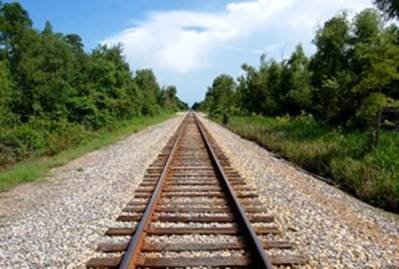
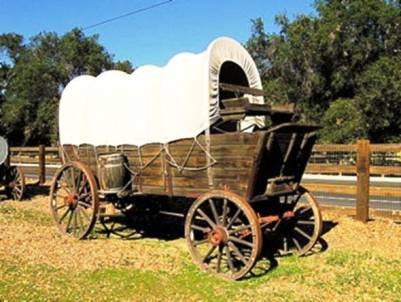

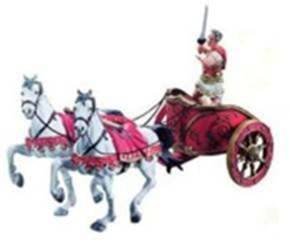


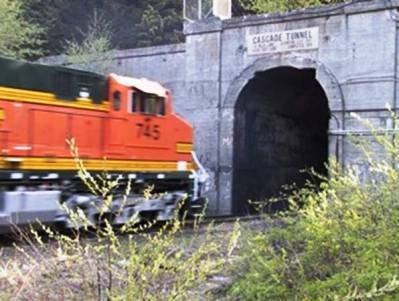
 and children and 32 people injured. The $800m construction of the
world's largest ever passenger liner was nearing completion, and some of
the 2,600 shipyard workers had been invited to show their families around
it when the accident occurred.
and children and 32 people injured. The $800m construction of the
world's largest ever passenger liner was nearing completion, and some of
the 2,600 shipyard workers had been invited to show their families around
it when the accident occurred.
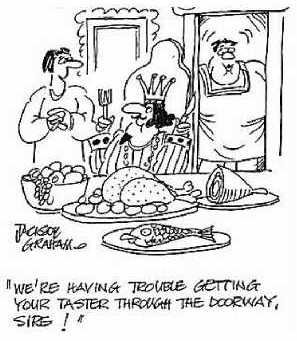
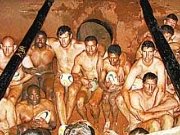 Its preparations included submitting
its squad to four days of SAS-style
motivational
Its preparations included submitting
its squad to four days of SAS-style
motivational 












